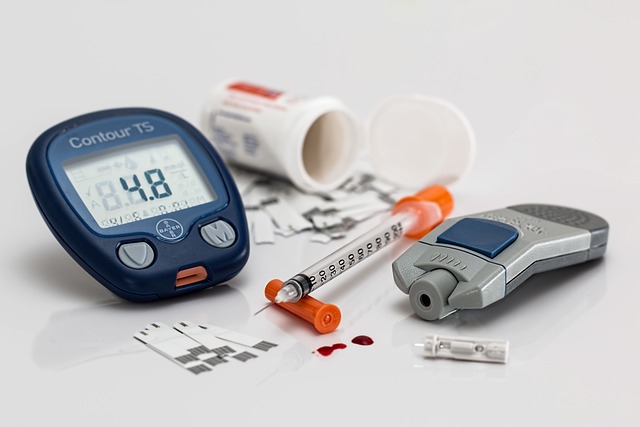
Below are some suggestions on how you can control your diabetes. Please note, these are only suggestions and you should consult with your medical professional prior to executing any of the tasks below.
Exercise at Least 30 Minutes a Day
This can include easy exercises such as taking a brisk walk, riding a bike, doing floor exercises while watching TV, and taking the stairs instead of the escalator or elevator, taking your dog for a walk, cleaning your home, and parking at the far end of the parking lot are all ways to incorporate exercise into your day.
Regular physical activity helps to manage diabetes and it can be as simple as running errands and briskly walking to the post office during your lunch break.
Choose Healthy Food

Selecting nutritious foods and balancing what you eat with activity level helps keep sugar levels as close to normal as possible.
Eat a lot of vegetables and fruits, one rule of thumb is to keep your consumption of produce as colorful as possible.
This adds variety and different nutrients to your diet. Be sure to choose non-starchy veggies such as spinach, broccoli, and green beans in your meals. Include fish, lean meats such as skinless chicken and turkey and use low-fat cooking methods such as roasting, poaching, and baking. Choose healthy oils for cooking such as olive, avocado, and canola oils. Eat fruit for dessert instead of high calorie sugary and fatty foods that contain little nutrition.
Check Your Blood Sugar
Your doctor or health provider will explain how often your blood sugar should be checked and how to test it. Alongside checking your blood sugar, be sure to take the medicine you are being prescribed by your doctor and know why and how to take it. Let your health provider know of any herbs or supplements you take as they could interfere with your medication and blood sugar.
Yearly Tests

Those with diabetes need to have a blood or urine test each year to check how well their kidneys are working. An eye doctor should also perform a dilated eye exam every year.
Cholesterol needs to checked once a year as well. Total cholesterol should be less than 200mg/dL. LDL (bad cholesterol) should be less than 100mg/dL and HDL (good cholesterol) should be greater than 40mg/dL for men and greater than 50mg/dL.
A1C Blood Test
This specific blood test measures A1C, average blood sugar, which should be less than 7 percent. This test should be done two to four times a year for those with diabetes.
Foot Exam
At each health care provider’s appointment, it is important to take off your shoes and socks and learn how to check feet for cuts, breaks in the skin, or ingrown toenails. Your doctor needs to know if there are any changes in the color or shape of your feet as well as any pain or numbness.
Quit Smoking!

Smoking can be a death sentence to even the healthiest of us. Just one story here to make the point, but as you might imagine, the horror stories about smoking are extraordinary!
There was a bar bounce, 6’8″ tall, super healthy, but had to have his cigarettes. The consequence let him to many hospital stays in his later years of which he had to be under care 24×7. He passed at too your an age.
Those that wish to stop smoking should call the NYS SMoker’s Quitline (866-697-8487). You don’t have to stop cold turkey unless you can, but a gradual decrease in smoking should not be out of the question.
Mental Health

People with diabetes are at higher risk for depression, be sure to talk with your healthcare team about any questions, problems, or feelings you may have.
